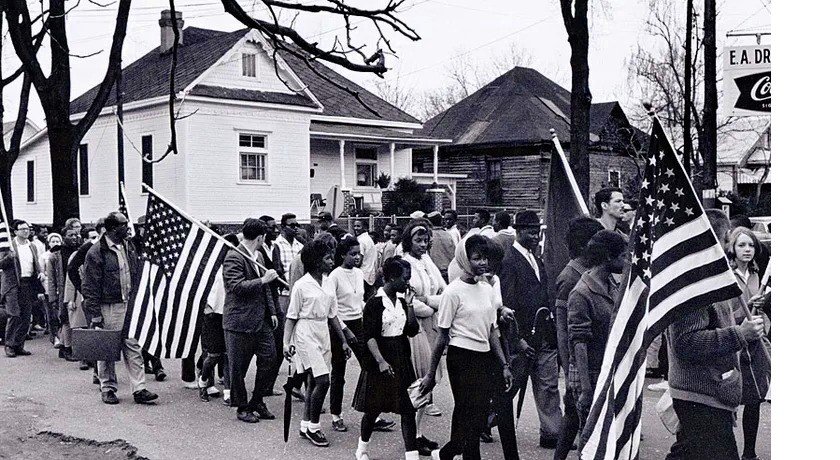The Economic Impact of Civil Rights Laws 2023


Civil rights laws are essential in forming societies and guaranteeing equal opportunities for everyone. These laws have a significant economic impact in addition to their social and ethical importance. In this post, we’ll look at how civil rights legislation affects the economy by promoting development, creativity, and wealth. We will learn more about the significant economic ramifications of these regulations by looking at numerous factors like employment, entrepreneurship, education, and consumer behavior.
Contents
- 1 Legal Changes Affecting Civil Rights
- 2 Productivity and Employment Equality
- 3 Business ventures and inventiveness
- 4 Diversity in the Workforce and Education
- 5 Market Growth and Consumer Behaviour
- 6 Economic Inequality and Disparities
- 7 The Cost of Discrimination to the Economy
- 8 The Function of the State and Law Enforcement
- 9 Various Obstacles and Future Directions
- 10 Conclusion
- 11 FAQs
Legal Changes Affecting Civil Rights
Aiming to end discrimination based on race, gender, age, disability, and other protected characteristics, civil rights laws have developed over time. The enactment of significant laws, like the Civil Rights Act of 1964 in the United States, signaled a turning point in the promotion of equality and the removal of structural impediments. The framework that is established by these regulations not only safeguards people against discrimination but also helps them realize their full economic potential.
Productivity and Employment Equality
The development of employment equality is one of the civil rights legislation’ most important effects. These rules level the playing field for both job searchers and employees by outlawing discrimination in hiring, promotion, and workplace practices. A varied and inclusive workforce is cultivated by equal access to employment opportunities, and this in turn promotes productivity and innovation. According to research, diverse teams bring a variety of perspectives to the table, which promotes more original problem-solving and greater business results.
Business ventures and inventiveness
Laws pertaining to civil rights also have a big impact on innovation and entrepreneurship. These rules enable people from historically marginalized groups to engage in entrepreneurial endeavors by removing obstacles and granting equitable access to resources. Increased entrepreneurial activity results in the growth of the economy, the creation of jobs, and a more active business ecosystem. In addition, a broad range of entrepreneurs introduces novel concepts, goods, and services to the market, encouraging innovation and rivalry.
Diversity in the Workforce and Education
In order to have a trained and adaptive workforce, education is essential. Equal access to education is encouraged by civil rights regulations, ensuring that everyone has the chance to advance their skills and abilities. These regulations help to create a workforce that is more inclusive and representative by promoting diversity in educational institutions. In addition to enhancing the learning environment, a varied staff also represents societal diversity, allowing firms to reach a wider clientele and make wiser decisions.
Market Growth and Consumer Behaviour
Laws pertaining to civil rights have a significant influence on consumer behavior and industry growth. Individuals become active participants in the economy when they have equal treatment and access to products and services. Businesses can reach a wider customer base and increase their market share by ending discriminatory practices. In turn, this promotes economic expansion and generates fresh chances for firms to succeed.
Read More: The Role of Mediation and Arbitration in Legal Disputes 2023
Economic Inequality and Disparities
Despite substantial advancements in civil rights legislation, inequality, and economic discrepancies still exist. Certain groups still experience disadvantages in terms of accumulating wealth, earning income, and having access to opportunities, especially those who have historically experienced discrimination. These inequalities impede global economic growth and emphasize the continuous necessity for strong civil rights law enforcement combined with supplementary measures to deal with structural problems.
The Cost of Discrimination to the Economy
The costs of discrimination to society’s economy are substantial. Talent and potential are unrealized when people encounter obstacles because of their race, gender, or other protected qualities. As a result, there is a decrease in production, innovation is hindered, and resources are allocated less effectively. Discrimination also keeps inequality alive, widening social gaps and preventing social cooperation. Civil rights legislation seeks to reduce these monetary costs and develop a more egalitarian society by outlawing discrimination.
The Function of the State and Law Enforcement
Civil rights legislation must be implemented and enforced effectively in order for their economic effects to be felt. Investigating complaints, enforcing compliance, and ensuring that businesses follow anti-discrimination laws are important functions of government organizations like the Equal Employment Opportunity Commission (EEOC) in the United States. These organizations strengthen the value of equal treatment under the law by holding infringers accountable and having a deterrent impact.
However, upholding civil rights laws is not primarily the government’s responsibility. Businesses, groups, and people all contribute in some way to the development of a just and inclusive society. Employers can establish fair recruiting procedures, conduct diversity and inclusion initiatives, and offer equal professional growth possibilities. Consumers.
Read More: Challenges and Progress in Enforcing Civil Rights Laws 2023
Various Obstacles and Future Directions
Even while civil rights laws have come a long way, real equality, and economic fairness remain elusive goals. Social norms, unconscious biases, and systemic discrimination continue to be barriers. Individuals that are a part of marginalized groups suffer additional difficulties as a result of intersectionality, which is the overlapping of several forms of discrimination. Comprehensive approaches that focus on the issues’ underlying causes, advance inclusive legislation and develop a climate of tolerance and acceptance are necessary for efforts to address these problems.
In addition, as the economy changes and new technology emerges, civil rights legislation faces new difficulties and opportunities. Concerns regarding algorithmic biases, privacy, and online discrimination are brought up by the digital world. Civil rights laws must be flexible enough to handle these changing challenges as technology continues to alter the economic landscape.
Conclusion
Civil rights legislation has a significant impact on the economy, fostering development, creativity, and wealth. These laws stimulate entrepreneurship and innovation, increase education and worker diversity, expand consumer markets, and alleviate economic imbalances by assuring equitable opportunities. To address persistent issues and establish a setting where everyone may fully engage in the economy, however, continued efforts are required. Societies may create a more equitable and affluent future by preserving civil rights laws and utilizing their economic potential.
FAQs
How do civil rights laws support economic expansion?
Civil rights laws encourage entrepreneurship, equality in the workplace, innovation, education, and the growth of the consumer market, all of which contribute to economic growth. These rules make sure that everyone has equal opportunity, which helps people from historically marginalized groups realize their full potential and boost their productivity and economic prosperity.
What are a few instances of civil rights legislation?
The United States Civil Rights Act of 1964, the United Kingdom’s Equality Act, and the Canadian Human Rights Act are a few examples of civil rights legislation. The use of protected categories like race, gender, age, handicap, and religion as grounds for discrimination is forbidden by these regulations.
Can civil rights legislation alter how wealth is distributed?
Yes, by lowering economic inequities, civil rights laws can help to improve income distribution. These rules contribute to the development of a more equitable society where everyone can realize their full economic potential by guaranteeing equal access to jobs and educational opportunities.
Do civil rights laws provide protection against discrimination at work?
Yes, civil rights laws shield employees from workplace discrimination by forbidding employers from treating staff members or job candidates differently depending on protected characteristics. These laws support fairness, equality of opportunity, and a multicultural and inclusive workforce.
Civil rights legislation removes barriers and discrimination based on protected qualities, fostering a more inclusive society. They make sure that everyone has equal access to opportunities, resources, and services regardless of their color, gender, age, or other characteristics, promoting social cohesiveness and a sense of belonging.






One Comment